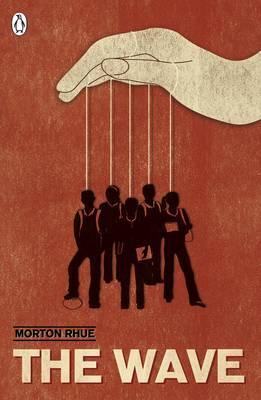Is COVID-19 the only contagion of 2020?
Based on a true incident, a book called The Wave (written by Todd Strasser under his pen-name, Morton Rhue) was published in 1981. It tells the story of a Californian high school History teacher, Burt Ross, who decides to carry out an experiment after his students question him as to why the average German enabled 
But they no longer question anything.
The situation spirals out of control when a student is beaten up for the ‘crime’ of being Jewish, while others are threatened for refusing to join The Wave, leading the Principal to enforce its termination. The premise of the experiment? The urge to belong and be part of something bigger than ourselves is both seductive and infectious (particularly for the impressionable young); any one of us can succumb to its lure.
The Social Media Virus
Today, many of us engage in the ‘wave’ that is social media with its intoxicating endorsement of freedom of speech. Social media has transformed the ways in which we receive and discharge information and opinions. Upward of 1.2 billion people use Facebook, while Twitter user numbers are north of 255 million, 
The Irony of ‘Woke’
Prejudice; be it racism, sexism, ageism, homophobia or one of its many other forms, is alive and well in almost every realm of modern life, including musical theatre. It is right and proper that this is challenged; it is right and proper that we continue to fight for both equality and equity. Social media seems an obvious arena for such campaigns to be showcased. Yet over-stepping is taking place; the R numbers of the aforementioned behavioural virus are on the rise. Many who vehemently stand up for the marginalised consider themselves ‘woke’, in other words, awake to injustices and persecution; ironically, such individuals can occasionally be blind to the paradox that they are themselves complicit in augmenting the limited perspectives they claim to despise. The idea of being woke, is fundamentally a left-wing (and well-meaning, it must be said) concept, yet in the hands of the ill-informed or just plain thoughtless it bears all the hallmarks of right-wing discrimination, albeit in the guise of crusading for a worthy cause. In other words, meting out venom against those with whom you disagree is suggestive of intolerance. Let’s not forget that to be woke is to be aware, yet without offering positive and practical solutions, this state of being is somewhat futile. In itself, it is not an agent for change. Angry and sometimes abusive reactions to injustice do not constitute a solution; they are as hollow as virtue signalling.
It’s All Greek to Me

The Rules of Civility
The cult of online vitriol is deeply unattractive, as well as harmful to society. Perhaps we could all still learn from George Washington’s 101 Rules of Civility and Decent Behaviour in Company and Conversation. Many of these hold surprisingly true in today’s cyber world. Perhaps most relevant of these rules is the combination of Rules 1 and 65: ‘Every action done in company ought to be with some sign of respect to those that are present. Speak not injurious words neither in jest nor earnest scoff at none although they give occasion.’ Rather fitting, in light of our contemporary virtual culture. We need to offset ‘the wave’ of hate before it gains more momentum. So should the temptation to react in kind on social media rear its ugly head, remember that an eye for an eye, whatever the good book may say, leaves everybody blind.




